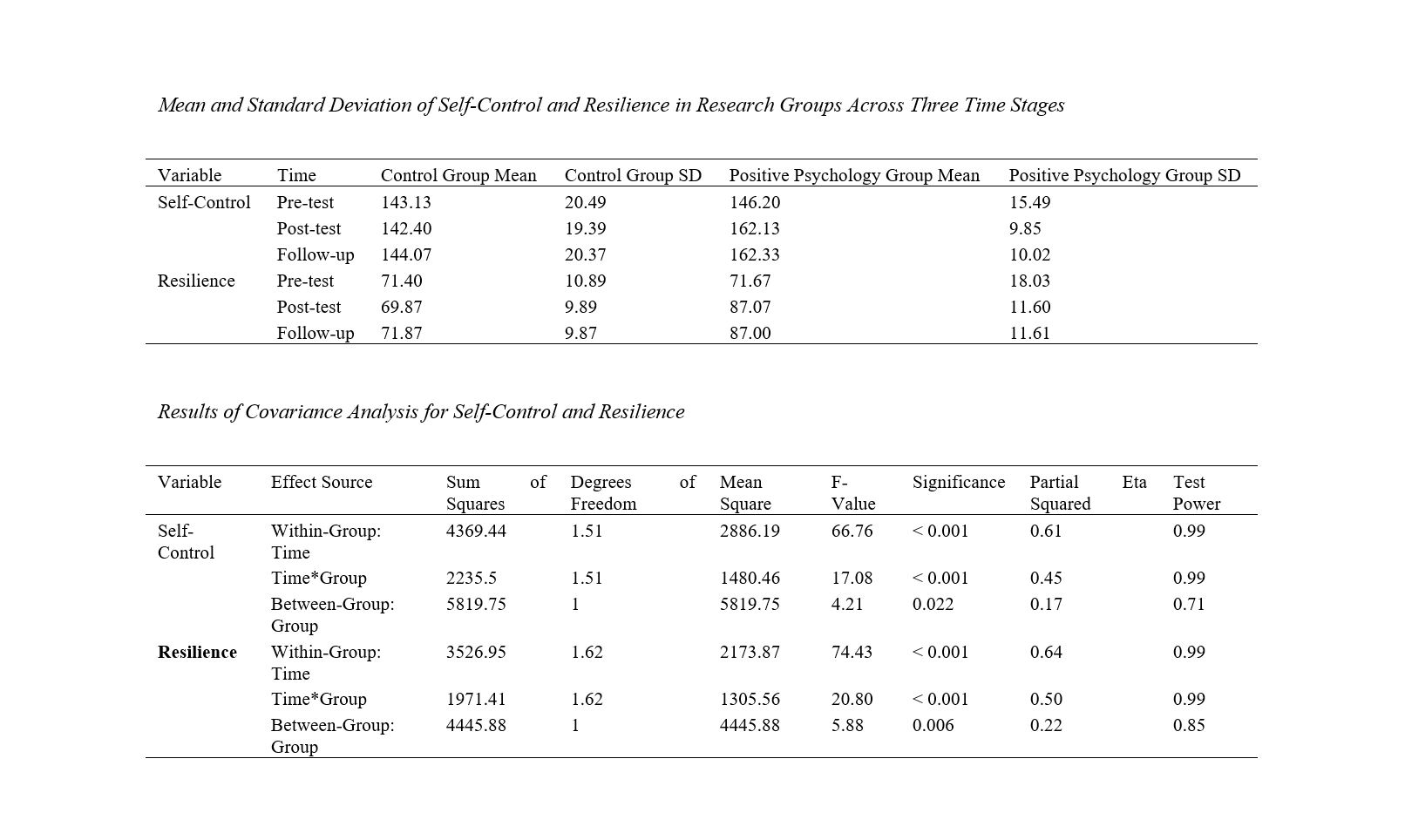Effectiveness of Positive Psychology on Self-Control and Resilience in Nursing Assistants
Abstract
Objective: Nursing assistants, due to their sensitive and serious work, have an urgent need to enhance their capabilities. Accordingly, this research aimed to compare the effectiveness of positive psychology training on self-control and resilience among nursing assistants.
Materials and Methods: The present study is a quasi-experimental research conducted in three phases: pre-test, post-test, and follow-up with a control group. The statistical population consisted of nursing assistants in the city of Isfahan during the years 2021-2022, from which 45 nursing assistants were purposively selected and divided into three groups (each group containing 15 individuals). The Tangney et al. (2004) Self-Control Scale and the Connor-Davidson Resilience Scale (2003) were used to measure the dependent variable at three stages. Two training groups, each underwent 8 sessions of 75 minutes of training, and the control group did not receive any treatment. Data were analyzed using repeated measures analysis of variance and Bonferroni post hoc test through SPSS software version 26.
Findings: The results showed that there is a significant difference in self-control and resilience between the positive psychology training and the control group (p < 0.01).
Conclusion: Considering the effectiveness of positive psychology training in enhancing self-control and resilience, it is recommended that this approach be employed in hospitals for nursing assistants.
Downloads

Downloads
Additional Files
Published
Issue
Section
License
Copyright (c) 2024 Seyed Javad Mousavi (Author); Hajar Torkan (Corresponding Author); Zahra Yousefi (Author)

This work is licensed under a Creative Commons Attribution-NonCommercial 4.0 International License.














